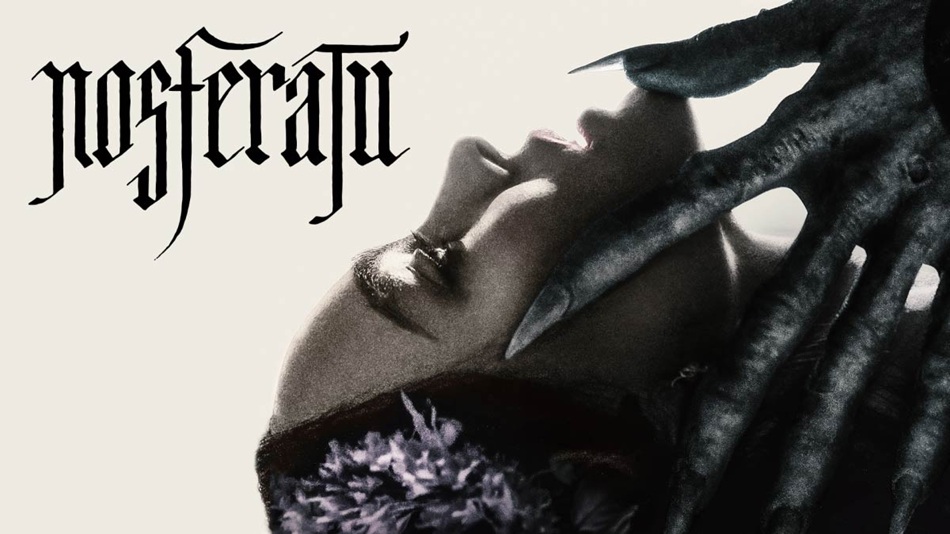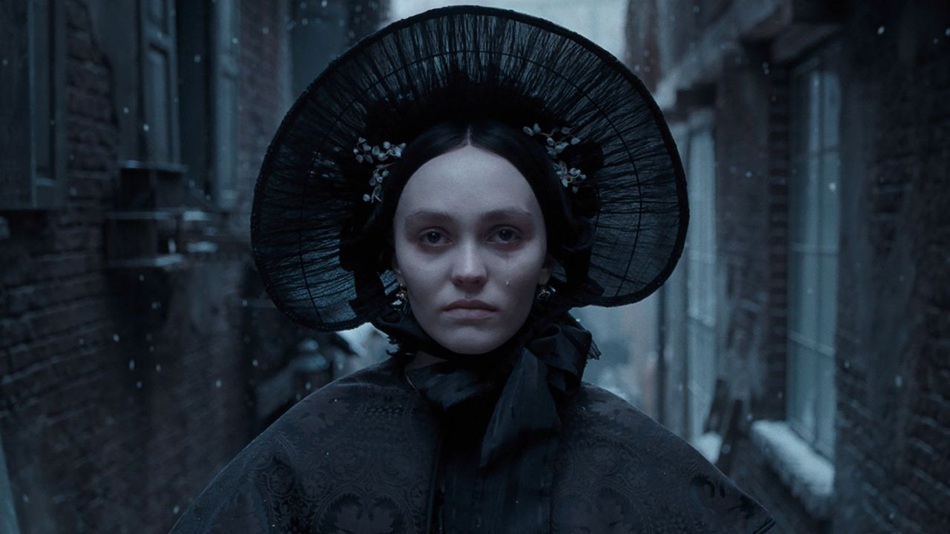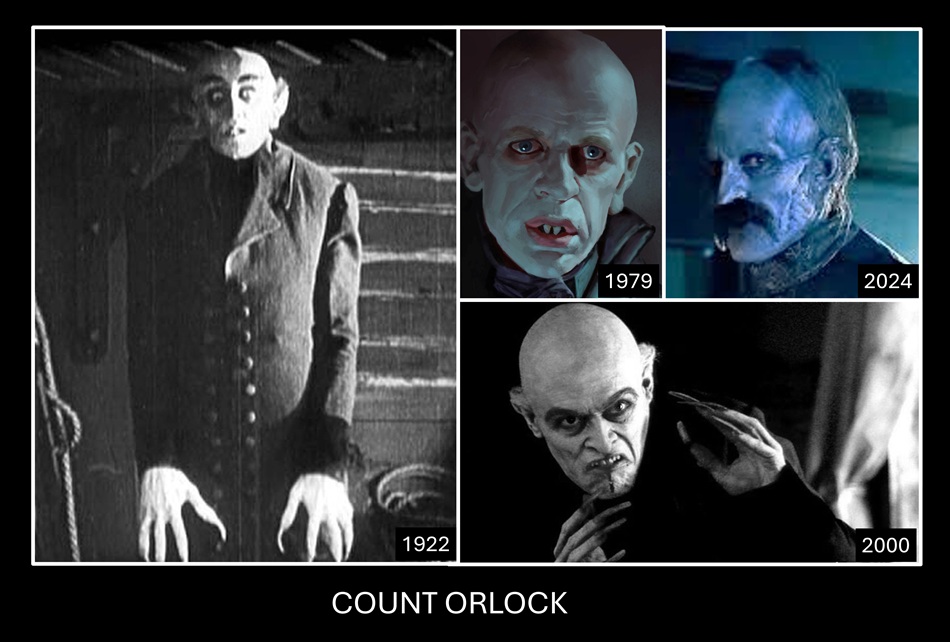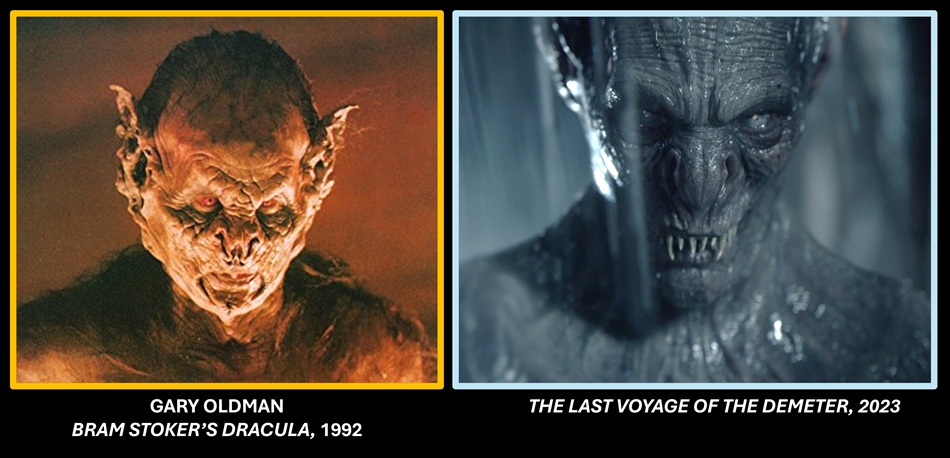Nosferatu: Was It the Time Change What Killed The Beast?

Reboots and Adaptations
Okay. So I finally got around to watching Eggers’ version of FW Murnau’s classic from 1922, Nosferatu: A Symphony of Horror. By now, I think everyone knows the story behind FW Murnau’s Nosferatu, but here’s a brief summary: Murnau’s Nosferatu was an unauthorized adaptation of Bram Stoker’s Dracula, changing character names and locations but retaining the core plot elements. The film, which originally claimed to be adapted from Stoker’s novel, was made to avoid copyright issues and was eventually subject to legal action that nearly destroyed all prints.
Despite the name changes and some alterations, the film’s narrative largely follows Dracula’s journey, with the protagonist, Count Orlok (instead of Dracula), traveling to a new land — Romania to Germany, instead of Transylvania to England — and spreading a plague. Eggers’ reboot is definitely well made and impressive, and it has an other-worldly feel to it. It’s different from other vampire films. That being said, the original silent version is way creepier.
Now, allow me to digress for a paragraph or so. In 1979, there was a remake of the film — Nosferatu the Vampyre, known in Germany as Nosferatu: Phantom of the Night — directed by Werner Herzog and starring Klaus Kinski as Count Dracula. Yes, all Stoker’s character names were used in this film version. Not a bad film, but a bit anemic, you should pardon the pun. There’s also a fun flick from 2000 called Shadow of the Vampire, a fictional telling of the making of the silent Nosferatu, in which Willem Dafoe (who also has a role in Eggers’ version) stars as Max Schreck, the real name of the actor who first played Nosferatu. The twist is this: Max Schreck is a real vampire — a vampire playing a human actor who’s playing a vampire. (Sort of a Victor/Victoria, with blood.) Now where was I? Oh, yeah.
Expect Sex
First off… yes, sex is at the heart of Eggers’ Nosferatu. Sex is at the heart of Stoker’s novel, which was written in the sexually repressed Victorian Era. Sex plays a part in almost every vampire film I’ve ever seen. Francis Ford Coppola’s Bram Stoker’s Dracula (1992), for example, is loaded with sex and nudity, like the Three Brides feeding on Keanu Reeves, one of whom is Monica Bellucci. There’s also a wild scene between Dracula (Gary Oldman), in wolf manifestation, humping Lucy Westenra (Sadie Frost.) Then there’s the love scene between Mina Harker (Winona Ryder) and Dracula, where she licks his blood off his chest.
So there’s nothing new on the sexual theme and subtext of this latest version of Nosferatu. In fact, Nosferatu owes a lot to Coppola’s Dracula, a film I am quite fond of, in spite of some cringe-worthy acting, dialog and miscasting. Gary Oldman was fantastic; he owns that role and that film, just as Lily-Rose Depp, the real star of Nosferatu, owns this film. I’ll come back to her.
Atmosphere
Eggers’ Nosferatu owes a lot to Coppola’s Dracula in its use of shadows and some “camera tricks.” It also boasts some exquisite scenery and set design, which convey the ideal atmosphere for the story. The cinematography by Jarin Blaschke is masterful, the film score by Robin Carolan is spot on, and there are some haunting audio FX that add to the grimness of this film. The script pretty much follows the plot of the original screenplay by Henrik Galeen, but doesn’t owe much to Bram Stoker, other than his novel being the inspiration for the original, silent film.
I found this extended version to be a bit — (a bite?) — too long (in the tooth?) because it was almost deadly-dull at times. It moved as slowly as a corpse first waking up as one of the Walking Dead. The film spent too much time on mood and set up, and the first two acts I found to be somewhat tedious and boring. Not enough was happening! I did not find it at all exciting. It was like watching a pair of heroin addicts playing chess. The third act picked up some energy, but by then I was yawning. The plague of rats was pretty cool, though. There are a lot of rats in this film. I mean, a lot of rats.

Casting
The cast was capable but not exceptional. They did their jobs and they did well enough. Willem Dafoe did a stand-up job, however, and in only one brief scene does he go over the top. I just couldn’t get emotionally attached or involved with any of the characters — except for Lily-Rose Depp. This is her film and she totally owns it. Her performance as Ellen Hutter (Mina Harker, in Stoker’s novel) is powerful and spot-on in every scene. She nails it and steals the show. She is put through the emotional ringer in this film — loving, angelic, quirky, possessed, demonic — you name it, she throws it all up there on the screen. She blew me away with a solid, heroic performance that was never over-the-top. She was brilliant. Her self-sacrifice in the final act is a powerful scene, and a sad one, as well.
As for the two kids who play the children of Anna Harding and Frederich Harding (Emma Corrin and Aaron Taylor-Johnson) I found them to be as annoying as a blister on the tip of my big toe, and when Nosferatu feeds on them, I cheered him on. It’s a brief, darkly-lit scene that quickly shift’s to Anna who sees her children being devoured, and the look on her face and her scream of horror, followed by her final fate, is chilling. That was a good bit. As for Bill Skarsgård, the other major player in Nosferatu and the title character…
I’m a fan. I’ve enjoyed his work in such films as John Wick, The Crow, and as Pennywise in the theatrical version of Stephen King’s IT — a feat of acting that, considering Tim Curry’s wonderful Pennywise, I applauded because he made the role his own: his Pennywise was the only good thing about that version of King’s novel.
But as for his take as Nosferatu… it didn’t work for me at all. I did not care for the make-up or the way he portrayed the character. There was nothing “supernatural” about him. He was just a force of evil, more like a big, hulking brute… and maybe that’s what Eggers wanted. I know The Last Voyage of the Demeter was not very well received, but I enjoyed that film and got a genuine sense of Dracula as being demonic, sorcerous, powerful, and evil. I didn’t get any sense of what Nosferatu felt for Ellen (Mina), no lost love, no real idea of why he wanted her, nothing about her being the reincarnation of a lost love. He says something about her not being of this world, of not being human or belonging to the living world — whatever. I must have missed something about how they were connected, but I’m not going back to “watch again,” at least not for the time being.
When Skarsgård’s dialog was in Romanian, it was subtitled in English. But when he spoke English, his accent was very difficult for me to understand. I was like, “What the hell is he talking about?” I kept expecting the villagers from Young Frankenstein to show up and shout in unison: WHAT?

Omnipotent Vampire Ignores Chicken, Dies
Now, here’s the problem I always had with the original version of Nosferatu, and with this one, too. I find it funny that an ancient, demonic, powerful vampire could become so besotted with blood and sex that he doesn’t see the sun rising and doesn’t pay attention to the cock’s first crowing. By the time of the second crowing, it’s too late. Didn’t he see or feel the sunlight shining through that honking-big window? Did he leave his watch at home? Did he forget about the time change? Or… maybe he knew that there was nowhere he could run and hide, because the coffin(s) full of his native soil had been destroyed. Or was this his fate, his desire — to perish in the arms of Ellen Hutter? I think that was it, because he could have let anyone destroy him at any time, if he wanted death and oblivion, but he wanted her to be his doom, he wanted to take her with him, to be with him forever in death. But what do I know? I’m not a real film critic. I’m just hear to entertain you Black Gate readers.
Check Out My Disappointment
I do not hate or dislike this version of Nosferatu. I am just disappointed in it. All the hype about this film, the word-of-mouth, gave me expectations of something I imagined would be a revelation, a landmark in moving pictures and vampire flicks in general. Thus, not getting what I expected, I was disappointed. It happens. And that’s on me. But if you haven’t seen the film, don’t let my review stop you from doing so. Check it out. You might like it. I’m sure I’ll watch the film again. Maybe it will grow on me. There are many favorite films I did not enjoy on first viewing, and vice versa, too. Anyway, Nosferatu was a big hit, it’s popular and made lots of $$$$$, so that should tell you something. One thing I do know… Lily-Rose Depp is going to have one helluva fine film career. I look forward to seeing her in more films.

Joe Bonadonna is the author of the heroic fantasies Mad Shadows — Book One: The Weird Tales of Dorgo the Dowser(winner of the 2017 Golden Book Readers’ Choice Award for Fantasy); Mad Shadows — Book Two: The Order of the Serpent; Mad Shadows — Book Three: The Heroes of Echo Gate; the space operaThree Against the Stars and its sequel, the sword and planet space adventure, The MechMen of Canis-9; and the sword & sorcery pirate novel, Waters of Darkness, in collaboration with David C. Smith. With co-writer Erika M Szabo, he penned Three Ghosts in a Black Pumpkin (winner of the 2017 Golden Books Judge’s Choice Award for Children’s Fantasy), and its sequel, The Power of the Sapphire Wand.
He also has stories appearing in: Azieran: Artifacts and Relics; Savage Realms Monthly (March 2022); Griots 2: Sisters of the Spear; Heroika I: Dragon Eaters; Poets in Hell; Doctors in Hell; Pirates in Hell; Lovers in Hell; Mystics in Hell; Liars in Hell; Sinbad: The New Voyages, Volume 4; Unbreakable Ink; Poetry for Peace; the shared-world anthology Sha’Daa: Toys, in collaboration with author Shebat Legion; and with David C. Smith for the shared-universe anthology, The Lost Empire of Sol.
In addition to his fiction, Joe has written numerous articles, book reviews and author interviews for Black Gate online magazine.
I’ve been intending to watch this, Joe…and now I don’t know what to do! Eggers is a puzzle to me; I thought The Witch was superb, and I thought The Lighthouse was execrable. (I didn’t see the other one – The Northmen or something?)
What the hell, I’ll probably get to Nosferatu over the summer. That’s what streaming is for – “It’s available, so what the hell” viewing.
Thomas, watch it. It’s creepy. I have not seen The Witch, but I id not care for The Lighthouse: at first I thought it might be something like or something based on Lovecraft. Nope. I was disappointed in The Northmen. I bought Nosferatu because I thought I might like it enough to keep. I’m keeping it. Its has plenty of good things, although the movie was lacking IMO. Lily Rose-Depp does a star turn, and she owns this film. Remarkale performance that is solid, weird, haunting and ultimately, sad.
I thought the movie failed on several levels too but, like you, Lily Rose was fantastic! I enjoyed your review so much…such smooth writing and insightful comments…brought attention to some things I had not thought of.
Thank you, Sally. The movie IS creepy, though.
Eggers is one of those filmmakers who reminds me of the Orson Welles comment that newer directors watch too many movies. All I see is a little early Lynch and a lot of Maddin funneled through a grad student sensibility that never quite outgrew a cocky 12-year-old mentality.
For all the faults in the original (both perceived through the lens of time and legitimate from its inception) the only way out Murnau Murnau is to put all contrivance aside and attack the premise with fresh eyes. I’m no fan of the other variations on the theme but they feel far better realized than this at once half-baked yet still overwrought concoction. And don’t even get me started on that make-up…
Nicely stated — and I quite agree. Shadow of the Vampire is fairly entertaining, though., The original Nosferatu, for all its faults, still works best for me. It’s a thin script, like Egger’s version, but there is something so unearthly about it that I find mesmerizing. I just watched it and Max Schreck comes off as totally not of the human species. “Grad student sensibility” — that’s perfect. It’s really just another remake. Skarsgaard, whom I enjoy as an actor, was wasted in this film. I will not be watching any more films from Eggers. Glad he didn’t do Frankenstein: looking forward to seeing what del Toro does with the source material.
You should give The Witch a try before writing Eggers off, Joe.
I intend to, even though I didn’t care for two of his films and am conflicted about Nosferatu. I HAVE heard more good things about The Witch than I have concerning his other films. I DO own Nosferatu on DVD, however. A friend of mine has The Witch on DVD and he’ll loan it to me, if I ask. The reason for my review of Nosferatu is two-fold: it’s a remake of a favorite silent film from my childhood, and I like Skarsgarred and wanted to see Lily Depp’s performance. Also, since I hadn’t written an article for Black Gate in well over a year and because I had strong feelings about this film, I decided to write a review that I hoped would entertain with the jokes and sarcasm and quirkiness I tried to put into it.